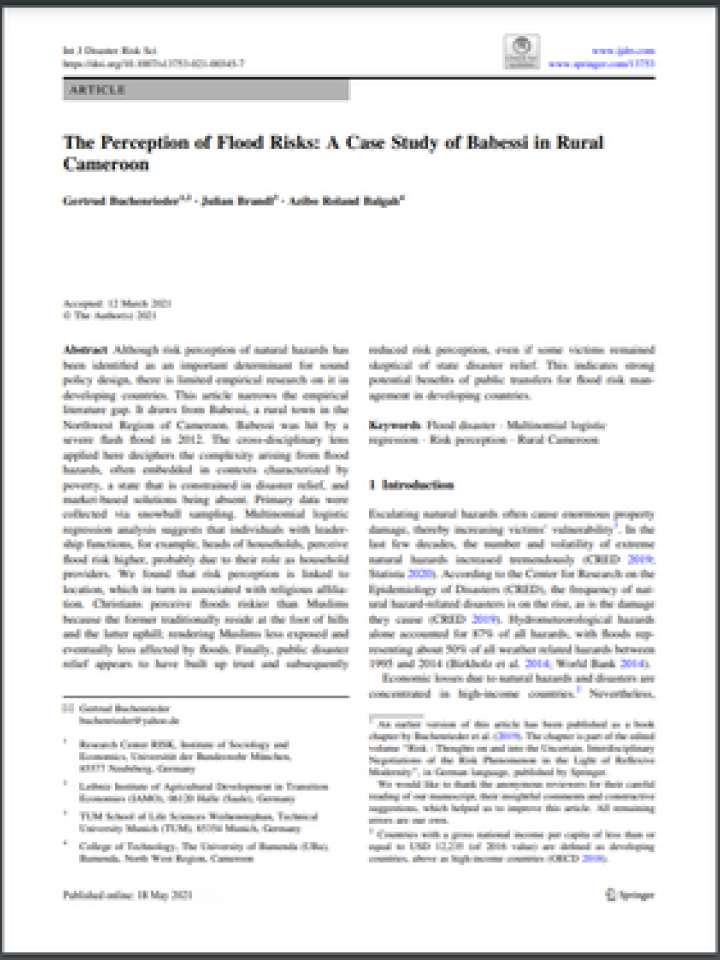The perception of flood risks: a case study of Babessi in rural Cameroon
This article narrows the empirical literature gap regarding risk perception of natural hazards, which has been identified as an important determinant for sound policy design by drawing from Babessi, a rural town in the Northwest Region of Cameroon. Babessi was hit by a severe flash flood in 2012. The cross-disciplinary lens applied here deciphers the complexity arising from flood hazards, often embedded in contexts characterized by poverty, a state that is constrained in disaster relief, and market-based solutions being absent.
The study found that risk perception is linked to location, which in turn is associated with religious affiliation. Christians perceive floods riskier than Muslims because the former traditionally reside at the foot of hills and the latter uphill; rendering Muslims less exposed and eventually less affected by floods. Finally, public disaster relief appears to have built up trust and subsequently reduced risk perception, even if some victims remained skeptical of state disaster relief. This indicates strong potential benefits of public transfers for flood risk management in developing countries.
Explore further
